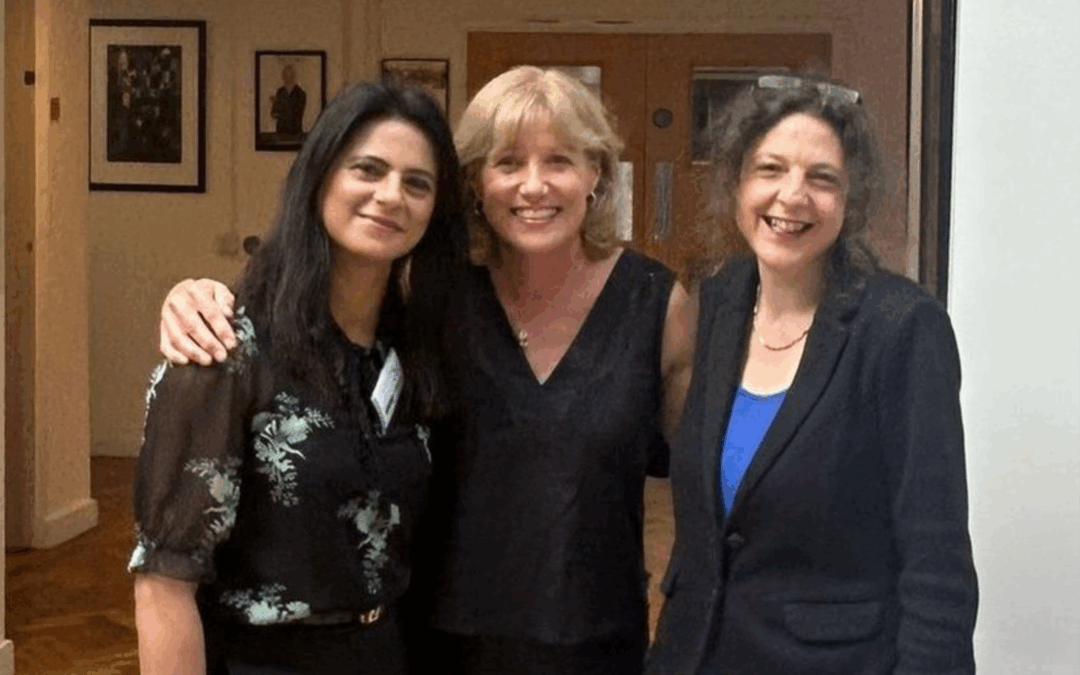Earlier this month, our senior financial and divorce lawyer, Farhana Shahzady, joined Kate Muir and Dr Laura Janes KC (Hon) at the PAMELA (Perimenopausal and Menopausal Legal Aid support network) launch event.
In recent years there has been increasing awareness of the impact of the menopause and perimenopause on women’s health and ability to function effectively in the workplace and more widely – though much of the focus has been on change within large corporate organisations and national services.
However, this issue is highly relevant to family law, as championed by Farhana as Founder of The Family Law Menopause Project and MON£YPAUSE, and Dr Laura Janes KC (Hon) as Founder of PAMELA.
The LAPG 2021 Census found almost two thirds of legal aid practitioners are women, and a large proportion of legal aid practitioners are over 40. Support for women, whether as employers or employees, who are (peri)menopausal is therefore essential, and yet is significantly under resourced.
PAMELA will provide opportunities for sharing resources and ideas including policies, practices and information. The network will provide physical and virtual places to share information and experiences to help legal aid and advice workers support clients and one another.
(Peri)menopause is a time of high anxiety and which may compound the problems faced by women, particularly considering that legal aid and advice sector work typically involves exposure to high levels of trauma and stress, whether as a result of our clients’ needs and experiences or the process itself.
Though these issues are not limited to practitioners but also affect many of the women who rely legal aid and advice services. In order to ensure that all women are effectively represented, whether that is lawyers, other laypersons or clients, our Family Justice System requires a clearly defined and appropriately integrated understanding of the impact of the (peri)menopause.
The PAMELA launch event, organised in collaboration with LAPG (Legal Aid Practitioners Group), saw Farhana speaking alongside Kate Muir to discuss the impact of menopause transition on professional women and clients alike.
As founder of the Family law Menopause Project, Farhana had already identified in innovative research carried alongside Newson Health, that menopause can hit marriages hard and can lead to relationship breakdown as well as leading to significant financial fall-out.
This is a subject that Farhana has explored in detail. ‘Divorce, the Moneypause and the Couplepause’ – Farhana’s chapter in Kate Muir in her fantastic new book ‘How to Have a Magnificent Midlife Crisis’ explores how:
“…women are already on the back foot financially, having worked part-time or taken a career pause to care for children or sick parents.
Many women are already on the back foot financially, having worked part-time or taken a career pause to care for children or sick parents.
It’s not easy to catch up when re-entering the midlife employment market. Ageism is still a barrier, and one in ten women leave their jobs due to menopause symptoms, so in some cases spousal maintenance can be a lifeline.
But it’s legally unpopular and offered begrudgingly for the shortest possible term, if at all, because the legal system simply has no concept of menopause or the related problem of Moneypause.
The Moneypause is not inevitable… But these systemic and deep-rooted barriers make it hard for many women to achieve a good standard of independent living after divorce or separation.”
Farhana explains that Moneypause also has significant long-term impact on pension savings, as shown by the Fair Shares report into financial arrangements around divorce by University of Bristol Law School, which showed that only 11% of divorces had a pension-sharing order.
Women tended not to pursue pension sharing, preferring to retain all or more of the matrimonial home, often because of the immediate needs of raising children. Unfortunately, this just helped to increase the pension gap where according to some reports, women retire with pension savings of around £70,000 compared with £205,000 for men.
Farhana will be conducting further work and research on MON£YPAUSE with the help of other professionals and academics interested in this important topic.

Farhana is an experienced family lawyer and mediator practising for over 20 years. She specialises in all aspects of family law with particular expertise in divorce/separation, complex matrimonial finance, cohabitee issues and arrangements concerning children. She is on the Law Society Family Law Panel and is a Resolution accredited specialist in both financial and children matters.
Farhana has been ranked in Legal 500 for a number of years and was voted onto Resolution’s National Committee in view of her commitment to family law. She has authored a number of articles for legal journals and is co-editor for Resolution’s spousal maintenance handbook


Recent Comments